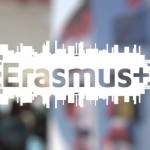Organisations active in the fields of education, training and youth receive support from the Erasmus+ Programme to carry out projects promoting different types of mobility.
The Mobility project for higher education students includes the following activities
1. Student mobility for studies: a study period abroad at a partner higher education institution (HEI).
The study period should respond to student degree-related learning and personal development needs.
It must be part of the student’s study programme to complete a degree at a short cycle, first cycle (Bachelor or equivalent), second cycle (Master or equivalent) and third or doctoral cycle.
A study period abroad may also include a traineeship period.
Student mobility can be in any subject area or academic discipline.
2. Student mobility for traineeships (work placement): a work placement abroad in an enterprise or any other relevant workplace.
The traineeships abroad at a workplace should be an integrated part of the student’s study programme and supported during short cycle, first, second, third cycle studies and in the case of mobility within Programme Countries, within a maximum of one year after the student’s graduation.
This also includes the ‘assistantships’ for student teachers.
Wherever possible, the traineeships should be an integrated part of the student’s study programme.
In order to better support students to acquire the skills necessary for their future, a partnership between the Erasmus+ and Horizon 2020 programmes has been established.
This partnership will provide and promote further traineeship opportunities for students and recent graduates who wish to acquire digital skills and competences required to perform jobs and thrive in an economy and society which is being continuously digitally transformed. Students and recent graduates from all disciplines are invited to apply for a traineeship in these domains. These traineeships are expected to take place in the EU Member States as well as in Horizon 2020 associated countries.
Who can apply
– For an application as individual Higher Education Institution: higher education institutions established in a Programme Country and awarded with an Erasmus Charter for Higher Education.
– For an application as national Mobility Consortium: coordinating organisations established in a Programme Country and coordinating a consortium awarded with a higher education Mobility Consortium Accreditation.
The number of organisations in the application form is one (the applicant). It is either a single higher education institution or a Mobility Consortium coordinator established in a Programme Country.
During the implementation of the mobility project, a minimum of two organisations (at least one sending and one receiving organisation) from different Programme Countries must be involved.
Eligible participating organisations
1. Student mobility for studies:
– both sending and receiving organisations must be higher education institutions awarded with an Erasmus Charter for Higher Education.
2. Student mobility for traineeships:
– In the case of mobility between Programme Countries, the sending organisation must be a HEI awarded with an ECHE.
– In the case of mobility between Programme and Partner Countries, the sending organisation must be a Programme Country HEI awarded with an ECHE or a Partner Country HEI recognised by competent authorities that has signed inter-institutional agreements with their Programme Country partners before the mobility takes place.
– the receiving organisation can be: any public or private organisation active in the labour market or in the fields of education, training and youth (a public or private, a small, medium or large enterprise, a public body at local, regional or national level, a social partner or other representative of working life, including chambers of commerce, craft/professional associations and trade unions; research institute, foundation, school, institute, educational centre, non-profit organisation, association, NGO, body providing career guidance, professional counselling and information services).
Duration of the project
– Mobility between Programme Countries: 16 or 24 months.
– Mobility between Programme and Partner Countries: 24 or 36 months.
Funding
The grant is based on the number of students taking part in the mobility activities, the average duration per participant of the planned mobility activities, the number and average duration of mobility activities (students) realized in the previous two years.
Where to apply
National Agency of the country in which the applicant organisation is established.
Deadline
– 12 February 2019, 12.00 (midday Brussels time) for projects starting on
– 1 June of the same year, for mobility projects between Programme Countries;
– 1 August of the same year, for mobility projects between Programme and Partner Countries.
For more information






Leave a Reply